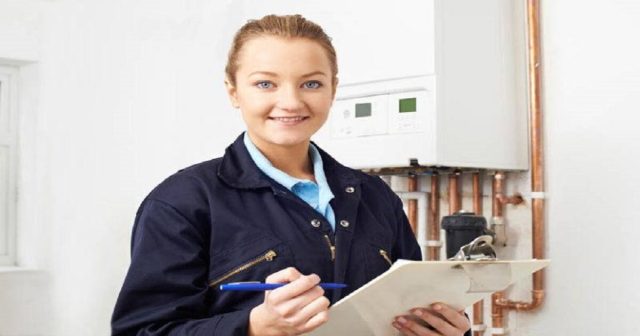The moment you become a landowner and lease your property, you become liable for the security of your occupants while they live in and utilize it. This implies that every one of the offices that you give should be protected. Assuming you presently live in an unrented property that is either possessed without anyone else or your loved ones, you will probably not have a Gas Safety Certificate for your gas machines. It depends on you to ensure that your gas machines are protected. The authority regulation that directs the utilization of gas in leased properties is the Gas Safety Certificate. These guidelines frame the obligations of property managers to guarantee that the gas machines, fittings, smokestacks, and vents accommodated occupants are securely introduced and maintained in safe working control.
While guaranteeing that your leased property consents to the law might appear tedious and costly initially, it becomes more straightforward with experience. It is critical to recollect why these guidelines are set up in any case. Mishaps occur, yet they are consistently avoided when we are capable and deal with ourselves and our environmental factors.
Gas Safety Certificate for Leased Property
As occupants, it isn’t possible to look at everything about a leased property and guarantee all has been securely introduced and is good to go (except if you are a gas-safe enrolled engineer where case perusing this post is pointless!). As such, it would be hazardous and untrustworthy to sign an agreement to live in a climate you can’t be sure is protected. On the opposite side, when you buy a property, with the advantage and opportunity of turning into the new proprietor, you are getting a sense of ownership. You can no more extend a ‘palm off’ obligation regarding the gas machines you use to a property manager. Assuming you acquire apparatuses with your new property, check they were introduced and looked at under Gas Safety Certificate guidelines. On the off chance that is not, think about getting new ones. In this post, we have outlined the documentation you want to give if you own and lease a property with a gas machine and why you want to do so.
Gas Safety Checks – Who Needs Them
Landowners need to get a Gas Safety Certificate to lease their property legitimately. To ensure they agree with regulation, they should guarantee that any gas machines, super durable or convenient, and gas pipes they own and accommodate use by their occupants have regular gas security checks. After these examinations, they will be given a Gas Safety Certificate (provided all machines pass). Property managers are expected to orchestrate these wellbeing takes at regular intervals, which any gas-safe enlisted engineer can do. Property administrators frequently yet do not necessarily utilize their handyman. You can check if your handyperson is a certified gas-safe enlisted engineer on the gas-safe register site. While sorting out for your property to be fit, you need to check to assume they can work in that particular area of gas. This will be set apart on the rear of their Gas Safe Register enlistment card and the Gas Safe Register site.
As a property manager, you should give an exceptional Gas Safety Certificate to existing occupants within 28 days of the gas security check record being finished and to new inhabitants before they move in. You can give your inhabitants their duplicate of the gas safety check record electronically for however long they are content with this and can get to it. It would help if you gave them a paper duplicate on the off chance they requested it.
Gas wellbeing checks are required by:
- Landowners
- Lodging affiliations
- Nearby specialists
- Lodgings and B&Bs
- Universities
- All-inclusive schools
- Lodgings
Likewise, virtual gas machines are introduced (as well as checked) by a Gas Safe enlisted engineer. It isn’t satisfactory for a Gas Safe enrolled designer to ‘close down’ gas work done by an unregistered specialist. Both the enrolled and unregistered installer could confront indictment.
Gas security checks – for what reason do we want them
Carbon monoxide (CO) is a drab, unscented, dull, poisonous gas. It is created by inadequate consumption of carbon-based fuels, including gas, oil, wood, and coal. Models in private properties are a few boilers for focal warming and gas hobs for cooking. CO prevents blood from carrying oxygen to cells, tissues, and organs when it enters the body. As per Safety and Security Chief measurements, around seven individuals kick the bucket from CO consistently.
For this reason, it is so critical to guarantee our gas apparatuses are securely introduced, utilized, and kept up with. In outrageous instances of drawn-out openness, loss of motion and cerebrum harm can be caused. Non-lethal degrees of transparency to CO truly hurt wellbeing whenever taken over a significant stretch. Carbon-based energies are protected from utilization. When the fuel doesn’t consume as expected, it is harmful that CO is created.
Carbon Monoxide – what to search for
Assuming confirmed engineers legitimately check your machines, there is no obvious explanation that you or your occupants will encounter a gas spill at your property. Notwithstanding, it very well may be consoling to you and your inhabitants to know what to pay special attention to. The accompanying demonstrates (however, don’t ensure) that deficient burning (which can bring about the creation of CO) is happening:
- Smell of gas while not utilizing apparatuses
- Yellow or orange fire in your heater – the fire ought to typically be blue (this doesn’t make a difference to fuel impact fires or flue less machines which show this variety fire)
- Residue or yellow/earthy colored staining around or on apparatuses
- Pilot lights that regularly victory
- Expanded buildup inside windows
You can visit the gassafetycertificateuk.co.uk for more data and to check the regulations.











